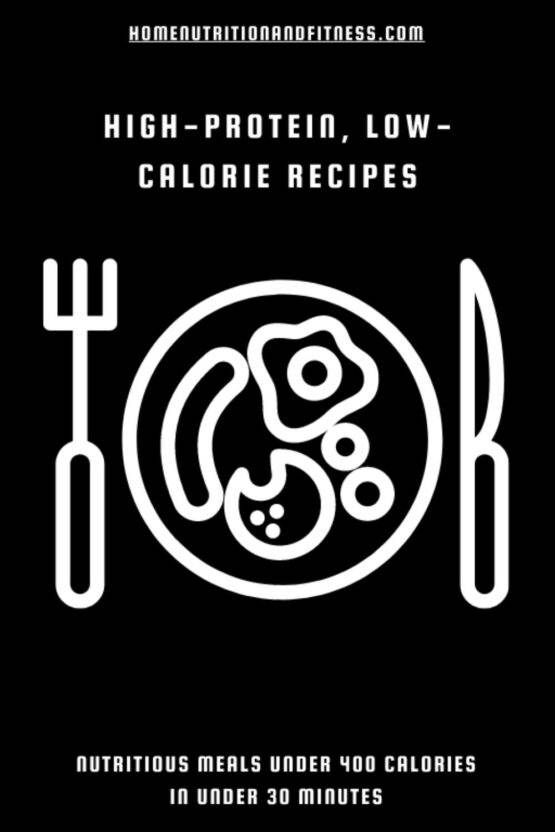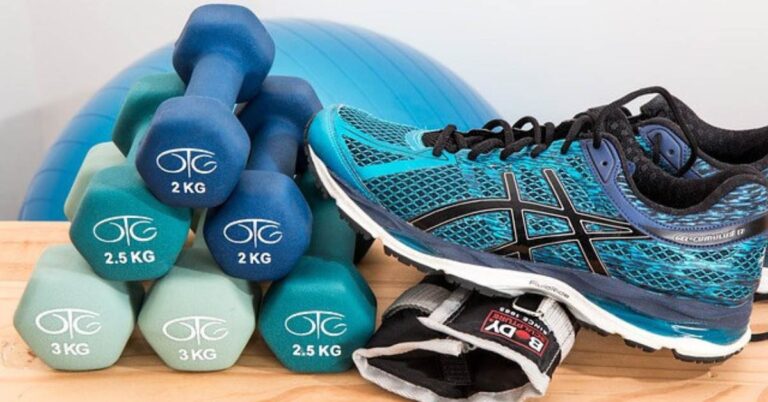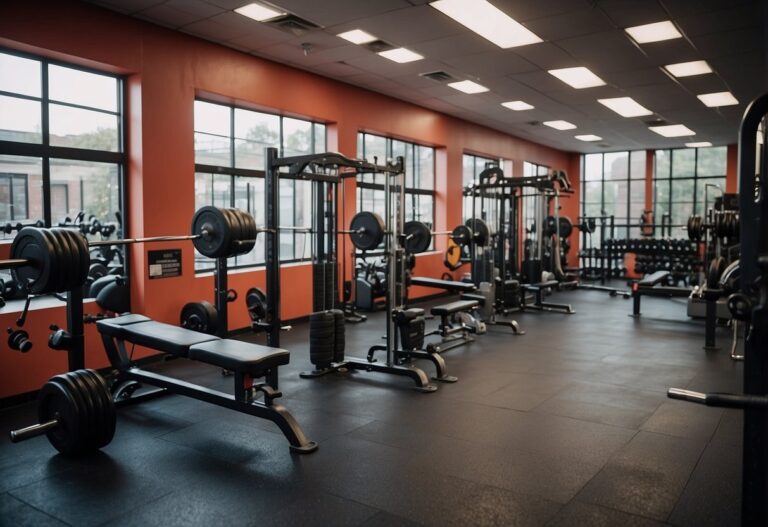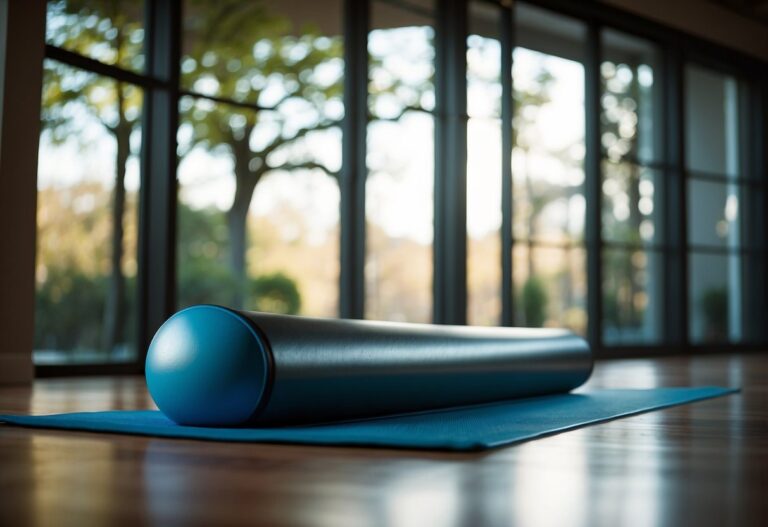Picture the scene. It’s January. You’ve eaten your own body weight in turkey, chocolates and anything else that was leftover from Christmas and New Year. You glance into the hallway mirror and you’re thinking someone has replaced with one from a hall of mirrors!
In your head, your first thought is, ‘Right, I’m going on a diet!’
There’s your New Year’s Resolution sorted…
You’re going to get in shape. You’ll lose the weight you put on and get ripped while you’re at it!
But how many times have you done this before? Or how often have you seen someone else make the same resolution, only to fall off in February because the weight you/they piled on in winter doesn’t drop off at the same rate?
I know how this whole cycle works because I’ve been there. It’s frustrating at times and demotivating too. I understand the frustration that comes with slow progress, unrealistic expectations, and conflicting advice.
Body recomposition depends on various factors. Some are genetic but some can be controlled such as diet and exercise. For beginners, changes are fairly quick. Fat loss takes around 2 to 6 weeks, and muscle gains in about 8 to 12 weeks. This is mostly down to a phenomenon known as “newbie gains”. For those who have been training for a while, the process takes longer as you lose stored body fat and become more accustomed to exercise. Fat loss should be visible in around 8 to 12 weeks, with muscle gains following in 12 to 24 weeks. And for advanced, changes could take even longer, sometimes years, to achieve significant muscle gains or lose those last bits of fat. Key factors in this process include a balanced diet rich in protein, a consistent exercise routine incorporating weight training and HIIT, and healthy lifestyle habits like adequate sleep and hydration.
Body Recomposition – Losing Fat and Gaining Muscle
Body recomposition, or body recomp, is an approach to exercise and diet aimed at changing the body’s composition.
Basically, it means altering the ratio of fat to muscle. Or to make it simpler, it’s about losing fat and gaining muscle at the same time.
A traditional ‘diet’ usually focuses on losing weight, which includes both fat and muscle.
Body Recomposition specifically targets fat loss while also increasing muscle mass.
If you imagine your body as a sculpture made of clay (the clay represents your body’s fat and muscle). Traditional weight loss methods are like removing chunks of clay in bulk, not really caring much about the shape.
Body recomposition is like having a sculptor who carefully removes clay from areas with excess (fat) and adds it to areas needing more definition (muscles), resulting in a sculpture that is both leaner and more defined.
Is it any wonder that many fitness models are referred to as sculpted or chiselled?
So How Long Does Body Recomposition Take?
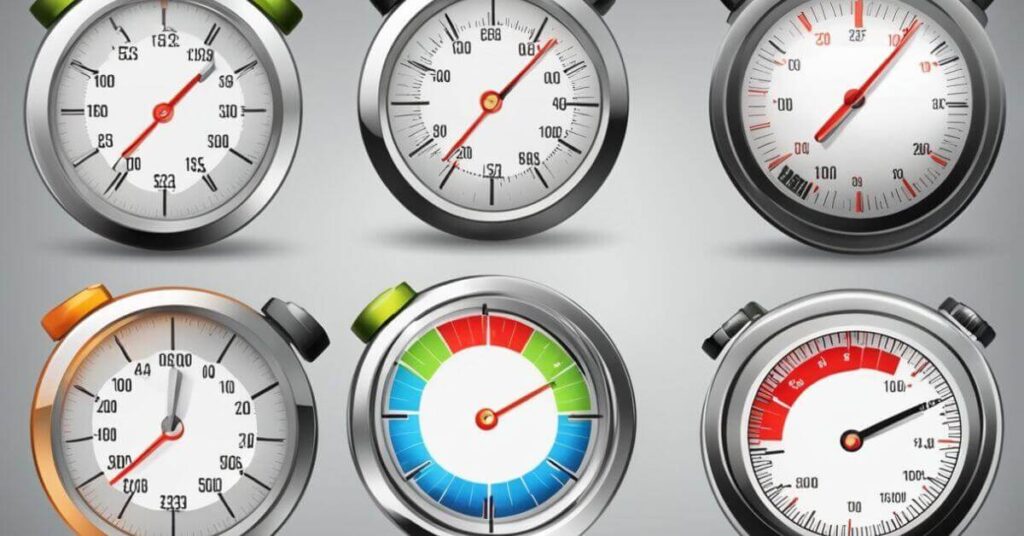
The truth is, there is no one-size-fits-all answer to that question.
There are so many different factors that affect body recomp, that it would be near enough impossible to answer.
However, some of these factors can be controlled or manipulated to improve your results and decrease the amount of time it takes to recomp.
These include:
- Age
- Gender
- Genetics
- Your current body composition
- Diet
- Exercise routine
- Overall lifestyle habits like sleeping patterns
It’s pretty obvious that we’ve no control over the first three. But diet, exercise routine, and lifestyle habits are well within our control. These are the factors we can ‘optimise’ for faster body recomp results.
Your current body composition also has an influence on how quickly you’ll see results from a body recomposition which I’ll cover later.
However, even if you ate the best diet, have the best exercise routines, and sleep like a baby for 9 hours a night, you’re still at the mercy of the other factors too.
Because of this, some people might see noticeable changes within a few weeks or months. But others may need months or even years to see a real noticeable change.
Understanding Body Composition
It’s all well and good knowing what body recomposition is, but what exactly is body composition?
Body composition is basically the amount of fat and fat-free mass (muscle, bone, and water) your body contains. Getting a good analysis of your own body composition gives a better understanding of your overall health, fitness level and starting point for body recomp.
Traditional bathroom scales measure your overall body weight, which is great if you want to track weight loss. But if you want to go through a body recomp and lose fat and gain muscle, a body composition scale is much better for tracking your progress.
You can pick up a basic one like the one I use – the eufy Smart Scale C1 Body Analysis Scales which work really well for the price.
I’ve found them more useful than traditional bathroom scales. It’s too easy to lose motivation when you don’t see any movement on the scales, but being able to track fat loss and muscle gain just reinforced what I was doing was making a difference, even if my overall weight didn’t change.
What Makes Up Your Body Composition?
Your body weight is a measure of your TOTAL mass. But this is made up of a few different metrics, including:
- Lean Body Mass – the total weight of your body MINUS body fat. Athletes tend to have a higher lean body mass.
- Muscle Mass – the total amount of soft muscle tissue in your body. Displayed in either weight or percentage,or both.
- Body Fat – the total amount of fat in your body. This is either in weight or as a percentage,or both.
- BMI – stands for Body Mass Index and measures your total weight compared to your height. My BMI has always told me I’m obese despite being fit and healthy. Read why this measurement is fundamentally flawed.
- Bone Mass – the weight and/or percentage of bone relative to your overall weight. The average is 3-5% for a typical adult.
- Visceral Fat – this type of fat is mainly found in the abdomen surrounding your internal organs. It is used to support and protect them but can be dangerous if too high.
Understanding your own body composition makes it easier to set a realistic goal for fat loss and muscle gain.
Personally, I focus more on increasing my muscle mass % and reducing my fat mass %. As long as I’m building more muscle mass and not eating in a calorie surplus, I’ll see muscle mass increase and body fat decrease.
Tracking changes of those 2 metrics makes it easier to stay motivated as I can see regular changes in them.
Body Recomposition Factors You Can Control
Earlier, I told you there are a few things you can do to change how quickly you see a change in body composition. Now let’s look at those in a bit more detail.
Diet
When it comes to losing fat and gaining muscle, your diet plays a big role.
To lose body fat, you need to be in a calorie deficit. This means eating less calories than you burn.
But, to gain muscle, you need to be in a calorie surplus, which means consuming more calories than you burn.
Now these obviously contradict each other but you can achieve both with a proper diet.
One of the most important macronutrients for both fat loss and muscle gain is protein.
Eating enough protein is important for building and repairing muscle tissue. It also helps to keep you feeling full and satisfied, which also helps with weight loss.
According to The American College of Sports Medicine, the optimal amount of protein to consume per day to build muscle is 1.2-1.7 grams of protein per kilogram of body weight per day, or 0.5 to 0.8 grams per pound of body weight.
As well as protein, you need to pay attention to your overall calorie intake. This is where your current body composition plays a part.
Someone starting with a high percentage of body fat already has a stored fuel source for muscle building (the excess fat). This means that it’s possible to eat in a calorie deficit, weight train to build muscle, AND still lose body fat for these people.
I can tell you for a fact that this is works as I’ve been through this myself. I went from 26% body fat to 19% body fat, eating in a 500 calorie deficit, and increasing muscle mass percentage from 68% to 72% in 6 months.
Clearly, the less body fat you start with, the slower the rate of muscle growth while eating in a calorie deficit.
Exercise
When it comes to body recomposition, exercise is just as important as diet.
The most obvious way to build muscle is through weight training. High-intensity interval training (HIIT) is also a good way to build muscle and incorporate fat-burning cardio into your exercise routines.
If you’re looking to go through a body recomposition, you need to make sure that you’re weight training for muscle-building as well as eating correctly as they both go hand-in-hand with each other.
There’s no point lifting heavy weights if you’re not eating enough protein in your diet. Your results will be minimal and it will take much longer to see any changes.
Furthermore, if you’re not getting enough exercise but eating as though you are, your body fat will either plateau or you’ll continue to gain body fat.
Lifestyle Habits
This was probably the part of my body recomposition that I found most difficult.
Your lifestyle plays a big part in how your body repairs and recovers.
You will already know that when you exercise, you’re essentially breaking down your muscles, and it’s what you do in your daily life and recovery time that makes a difference to how well your muscles rebuild and recover.
Rest days are crucial for recovery. It’s during these days that your muscles repair and grow. Skipping rest days can actually hinder your progress, as your muscles won’t have enough time to recover properly. I usually take one or two rest days per week, depending on how intense my workouts have been.
Sleep is a big part of my lifestyle that I struggled with. I’ve always been a night owl, staying up to watch TV shows or play games on my phone. I’d probably get about 6 hours sleep per night.
It wasn’t until I started going to bed earlier and getting 8 hours sleep minimum that I saw faster changes.
When we sleep, the body releases growth hormone, which is essential for muscle growth and repair. If you’re not getting enough sleep, your body won’t have enough time to produce this hormone, which slows your progress.
Drinking plenty of water and staying hydrated is a big factor in fat loss and muscle growth. It boosts metabolism and aids in muscle growth and repair.
Staying hydrated also helps to regulate appetite by filling your stomach and preventing overeating. It is also important for effective digestion and nutrient absorption.
In addition to rest days, sleep and hydration, there are other things you can do to aid in recovery. Foam rolling, stretching, and massage can all help to alleviate soreness and promote blood flow to your muscles.
I usually go for a walk on my rest days as it increases the number of calories I burn on those days which then makes it easier to maintain my calorie intake.
Your lifestyle, which includes rest and recovery is just as important as exercise when it comes to losing fat and gaining muscle. Skipping rest days or not getting enough sleep can actually hinder your progress.
Current Body Composition
I briefly mentioned this earlier but your current body composition has a big bearing on how quickly you can lose fat and gain muscle. So for example:
Beginner
If you are a beginner, you probably have a body fat percentage of 20% or higher for a male, and 30% or higher if you are female. You have little to no weight training experience, and your baseline of muscle mass is low. You can expect to see faster initial fat loss and muscle growth than someone who is more experienced due to ‘newbie gains’.
Intermediate
If you have been weight training for 6 months or more, and have been in a calorie deficit for that time too, you are considered an intermediate. Your body fat percentage is likely between 15-20% if you are male, and 25-30% if you are female. You have a moderate amount of muscle mass.
Advanced
If you have been weight training for years and have built significant muscle mass over time, you are considered advanced. Your body fat percentage is likely under 15% if you are male, and under 25% if you are female.
For the more advanced people, a body recomp is usually done in 2 stages – bulking and cutting.
Bulking involves eating in a calorie surplus to provide additional energy for muscle growth. This is then followed by a cutting period where you eat in a calorie deficit to reduce body fat while maintaining muscle mass.
Both bulking and cutting involve a high protein intake which is the most important macro for muscle gains.
Related Posts:
- How Long Does It Take for Protein Powder to Kick In? (REVEALED!)
- Are Home Workouts Enough to Build Muscle?
Other Factors Affecting Fat Loss and Muscle Gain

When it comes to losing fat and building muscle, there are other factors that we can’t control that affect progress:
Metabolism and Metabolic Rate
Your metabolism is simply how your body processes food and burns calories. Some people have a faster metabolism than others, which means they burn more calories at rest.
Age, sex, and genetics can all influence your metabolic rate. For example, men tend to have a higher metabolic rate than women, and younger people generally have a faster metabolism than older individuals.
Hormones
Hormones can also affect your ability to lose fat and gain muscle.
For example, testosterone is a hormone that is important for muscle growth in men. Women also produce testosterone, but in smaller amounts.
Hormonal imbalances, such as those that occur with certain medical conditions, can make it harder to lose fat and build muscle.
Protein Synthesis and Leucine
Protein synthesis is the process by which your body builds muscle. You already know that to build muscle, you need to consume enough protein. Protein contains amino acids that your body uses to synthesize muscle tissue.
Leucine is an essential amino acid that is particularly important for muscle growth. Consuming protein sources that are high in leucine, such as meat, dairy, and eggs, can help support muscle growth.
How Long Will Body Recomposition Take?
Taking all of the above into account, how long can you expect before seeing any fat loss and muscle gains?

For Beginners
A beginner, someone who rarely lifts anything other than the TV remote, can expect to see fat loss results within 2-6 weeks provided you maintain a consistent weight training program and a calorie-deficit diet. You may also notice some muscle gain in 8-12 weeks through “newbie gains”.
However, as your body fat starts to reduce, the amount of excess energy for muscle building gets less and less which can slow any progress. If you remain consistent with your training and diet, you’ll still see body changes for around 6-12 months.
So for a complete beginner, the initial body recomposition transformation could take approximately 6 months of fully focused diet and training.
Newbie Gains Explained
For Intermediates
If you have at least 6 months of proper training under your belt and a moderate fitness level, a more realistic timeline would be to see noticeable fat loss in around 8-12 weeks. Muscle gains are still possible and should show anywhere between 12-24 weeks as you still have some stored fat reserves to help with muscle building.
You can expect gradual progress for 1-2 years providing you are using progressive overloading in your training and maintaining a high protein calorie-controlled diet
For Advanced Gym-Goers
If you are already at an advanced level, with years of training and a fit physique, the timeline to lose that last bit of body fat is longer.
Fat loss may take up to 16 weeks to remove the last bit of stubborn body fat. Gaining even 1-2 pounds of new muscle over a year would be considered successful.
A timeframe of 3+ years is not out of the question.
The more ‘trained’ you are, the harder and slower gains come.
Body Recomposition: Losing Fat and Gaining Muscle – The Key Takeaways
By now, you’ll hopefully understand that there is no hard and fast answer to how quickly you can lose fat and gain muscle. There are multiple genetic and lifestyle factors that affect how long it takes but let’s cover some key points related to body recomposition:
- Body Recomposition Basics: Body recomposition is about changing the ratio of fat to muscle in the body. It’s different from traditional weight loss as it focuses on losing fat while gaining muscle simultaneously.
- Factors Influencing Body Recomposition: The timeline for body recomposition varies massively and depends on factors like age, gender, genetics, current body composition, diet, exercise routine, and lifestyle habits like sleep.
- Diet and Nutrition: To lose fat, you need a calorie deficit, and to gain muscle, a calorie surplus is usually, but not always, needed. Protein is the most important macronutrient for both muscle building and fat loss. Adjusting your calorie intake based on your current body composition is key.
- Exercise is Crucial: Weight training and high-intensity interval training (HIIT) are effective for building muscle. The combination of correct exercise and diet is vital for effective body recomposition.
- Importance of Lifestyle Habits: Recovery, including rest days and getting enough sleep, plays a significant role in muscle growth and fat loss. Good hydration and stress management also contribute to effective body recomposition.
- Understanding Your Body Composition: Knowing your body composition, including metrics like lean body mass, muscle mass, body fat, and BMI, helps in setting realistic goals and tracking progress.
- Realistic Expectations and Timelines: Beginners can see noticeable changes in a few weeks to months, but progress will slow down as they become more trained. Intermediate and advanced individuals should expect slower, more gradual changes.
- Newbie Gains: Beginners have the best potential for fat loss and muscle gain. This is partially due to ‘newbie gains’ which is a rapid improvement in muscle and strength as the body adapts to the physical demands of exercise.
- Persistence and Consistency: Continuous effort and adherence to diet and exercise routines are crucial for long-term success in body recomposition, regardless of the starting point.
Frequently Asked Questions
How can beginners gain muscle mass in a calorie deficit?
Beginners are able to use stored body fat as fuel for muscle protein synthesis. This means muscle growth is possible even when in a calorie deficit. However, as body fat reduces the ability to build muscle in a calorie deficit reduces.
Can I lose fat and gain muscle at the same time?
It can be difficult tolose fat and gain muscle at the same time. Being in a caloric deficit is needed to lose fat, while a surplus is needed to build muscle. However, it is possible for beginners build some muscle during the fat loss phase due to being able to utilise stored fat for muscle growth.
What type of lifting is best for body recomposition goals?
The optimal lifting regimen involves a mix of heavy, compound lifts like squats, deadlifts and bench presses to build overall mass coupled with targeted isolation moves for specific muscles. Include both free weights along with some machine-based exercises for diversity. Progressive overload through added weight or reps over time is key for ongoing muscle and strength development. Split training muscle groups across 3-5 workout days.
How long does it take to burn fat during exercise?
Burning fat during exercise varies from person to person and depends on several factors such as age, weight, and intensity of the workout. However, on average, it can take anywhere from 20 minutes to an hour to start burning fat during exercise.
Is it faster to lose fat or gain muscle?
In general, it is easier and faster to lose fat than to gain muscle. Losing fat can be achieved by creating a calorie deficit through diet and exercise, while gaining muscle requires consistent strength training and a calorie surplus.

